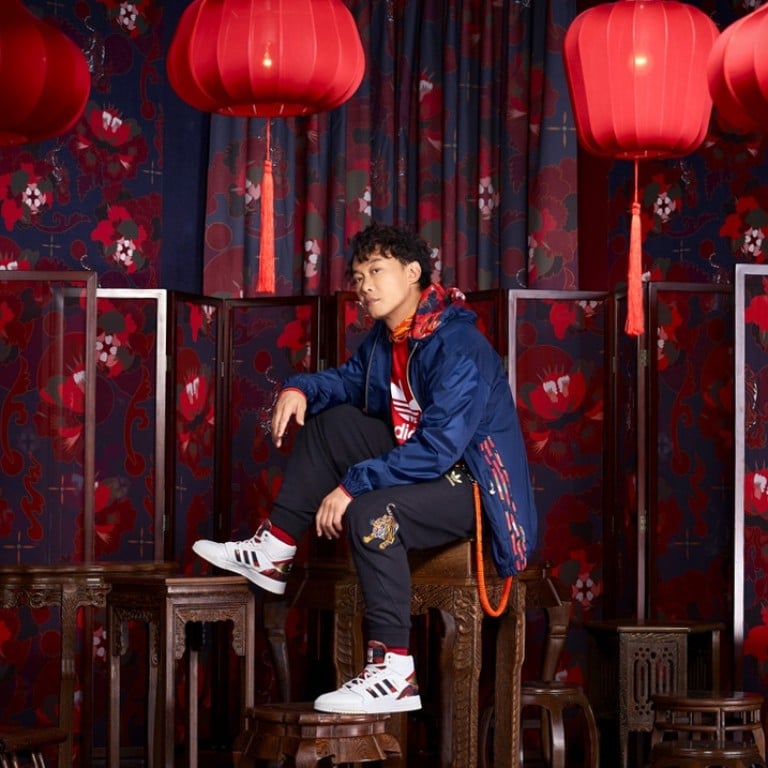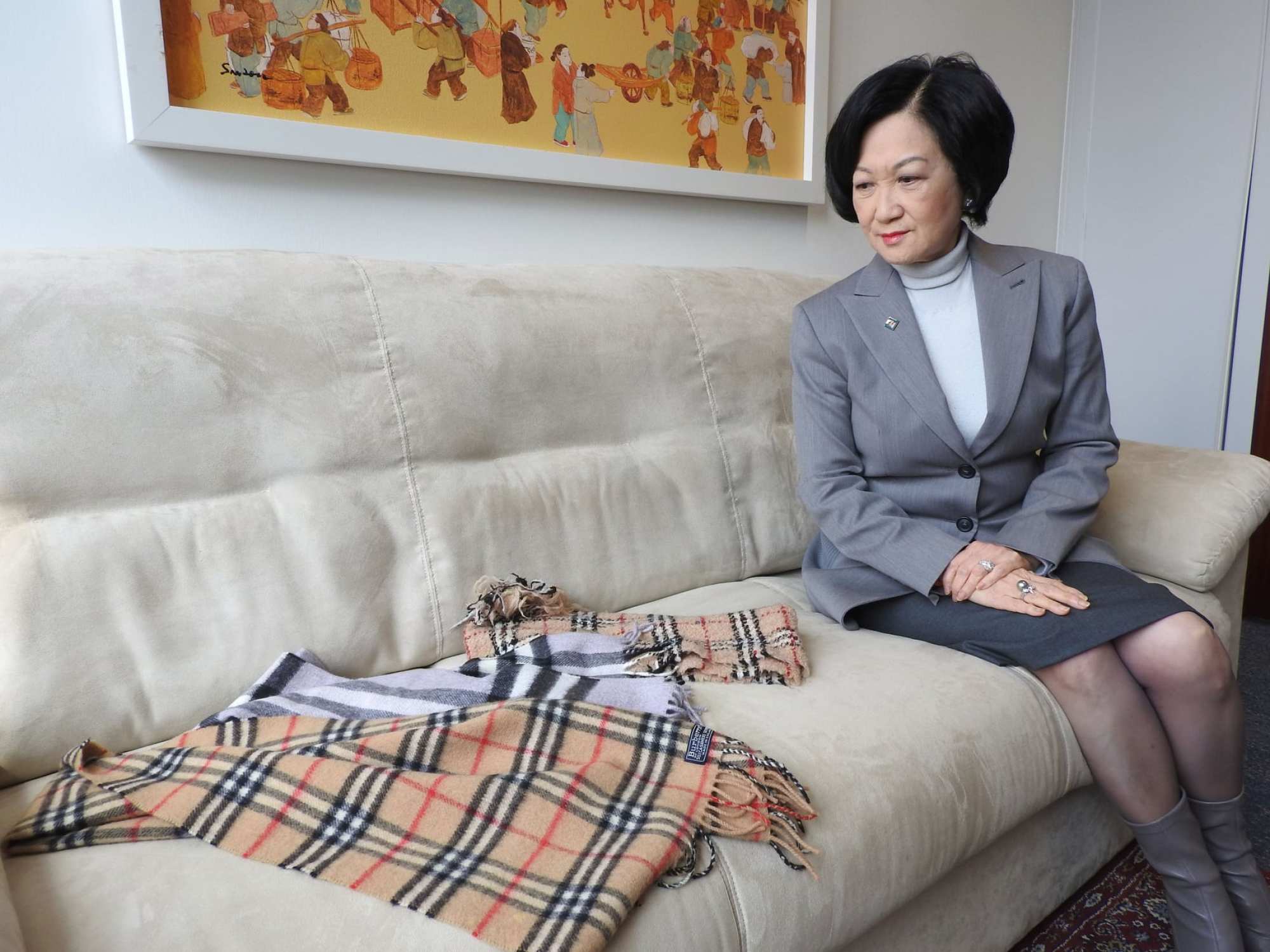
Fans slam Canto-pop star Eason Chan for cutting ties with Adidas amid Xinjiang cotton row
- Chan steps down as marketing figure for sportswear company that is boycotting the export over rights concerns
- Pro-establishment lawmaker Regina Ip vows to shun Burberry, which has also taken a stand, and will put away her scarves
Canto-pop superstar Eason Chan Yik-shun is the latest Hong Kong performer to face a public backlash from some fans after announcing he is cutting ties with Adidas over its rejection of Xinjiang cotton.
A string of Chinese celebrities have cut ties with the companies as a result, while several big names in Hong Kong have publicly expressed support for buying Xinjiang cotton, including Joey Yung, singer Pakho Chau Pak-ho, actor Jordan Chan Siu-chun and actress “Angelababy” Angel Yeung Wing. Pro-government politicians also stated they would avoid buying products from the Western brands.

In a move that surprised many of his fans, Eason Chan, 46, announced on Thursday his company My Kan Wonderland Limited would no longer be a brand ambassador for Adidas.
“This company and its artist Mr Eason Chan resolutely boycott any behaviour vilifying China. Starting from today, we will terminate all collaborations with the Adidas brand,” the post on Weibo said.
While his Facebook page did not mention the decision, thousands of people flooded his page with comments sharply critical of the move. Some vowed to no longer attend his concerts or buy his albums.
“I am heartbroken and utterly speechless. This is not the Eason Chan I loved,” wrote Joel Chu on her own Facebook page. “How could he turn a blind eye to the condition of human rights just because he wants to earn money in China? I stop supporting him from now on. Shame on him!”
Jackey Yuen, a fan of Chan for almost 20 years, said he was torn by his idol’s decision.
“He did not need to say anything about this to get himself caught up with this political issue. He should have just stayed silent, like he did during the whole anti-extradition bill saga,” Yuen said, referring to the Hong Kong government’s bid to pass legislation in 2019 allowing the transfer of suspects to other jurisdictions. “But now, I will listen to his songs for one last time, to say goodbye for good.”
But others said they would support Chan regardless of his political stance.
Pro-establishment lawmaker Regina Ip Lau Suk-yee posted a series of tweets vowing to stop buying British luxury brand Burberry, formerly one of her favourite brands and which said last year it did not use any raw materials from Xinjiang. In one message on Twitter accompanied by a photo of her with Burberry scarves, Ip said she would not wear the products “until Burberry has retracted or apologised for its unfounded allegations against Xinjiang”.
Asked whether she would boycott other brands, Ip told the Post she was looking into them but said H&M was a brand for “younger people” and she was not a customer.
Some people writing on social media challenged her to go one step further and burn her Burberry scarves, but she said she would “put them away for the time being”.
“There is a Western saying that says don’t bite the hand that feeds you. China is the only major economy registering positive growth. Why destroy your market by repeating other people’s lies?” Ip said.
European firms in China ‘between rock and hard place’ as Xinjiang row rages
Holden Chow Ho-ding, a lawmaker of the Democratic Alliance for the Betterment and Progress of Hong Kong, vowed to stop buying H&M products, adding it was “utterly stupid for companies to join a political boycott”.
“It is also unscrupulous for these companies to do trade with China but stab China in the back at the same time,” he said.
New People’s Party vice-chairman Eunice Yung Hoi-yan said the Western companies were making business decisions based on erroneous information. “I will not pay for lies,” she said. “We should firmly safeguard our national image and interests.”
The leader of the business-friendly Liberal Party, Felix Chung Kwok-pan, struck a more moderate tone, saying: “I do not have plans to buy any clothes. I have too many clothes already.”
Chung, who represents textile and garment companies in the Legislative Council, said the firms that had pledged to boycott Xinjiang cotton would have to source it from elsewhere, such as Pakistan, India and Brazil. That in turn would raise demand in those markets, which would increase wholesale costs that could be passed onto the consumer. “On the other hand, they’re losing a big market,” he said.
According to the United Nations, human rights groups and victim testimonials, China has placed at least 1 million Uygurs and other ethnic minorities in high security camps, where they are subjected to indoctrination, torture and forced labour.
Western governments have levelled sanctions against mainland Chinese officials for their role in the alleged abuses, while Beijing claims the camps are used for job training as part of a broader poverty alleviation effort.
State media has also gone on the offensive, with Communist Party mouthpiece People’s Daily on Thursday saying Adidas and other global brands were not sourcing Xinjiang cotton.
China sanctions British MPs, lawyers, businesses for Xinjiang ‘disinformation’
“There are many foreign companies that have released statements which ‘cut ties’ with Xinjiang cotton in the past two years. This included the Better Cotton Initiative members Burberry, Adidas, Nike, New Balance and others,” said the post published on Weibo, China’s equivalent of Twitter.
Chinese Foreign Ministry spokeswoman Hua Chunying said the allegations of rights abuses were “lies” and reaction from the mainland’s online community about the cotton boycott was simply “patriotism”.
Beijing on Friday announced sanctions on nine individuals and four entities in Britain it said “maliciously spread lies and disinformation” about the situation in Xinjiang.


